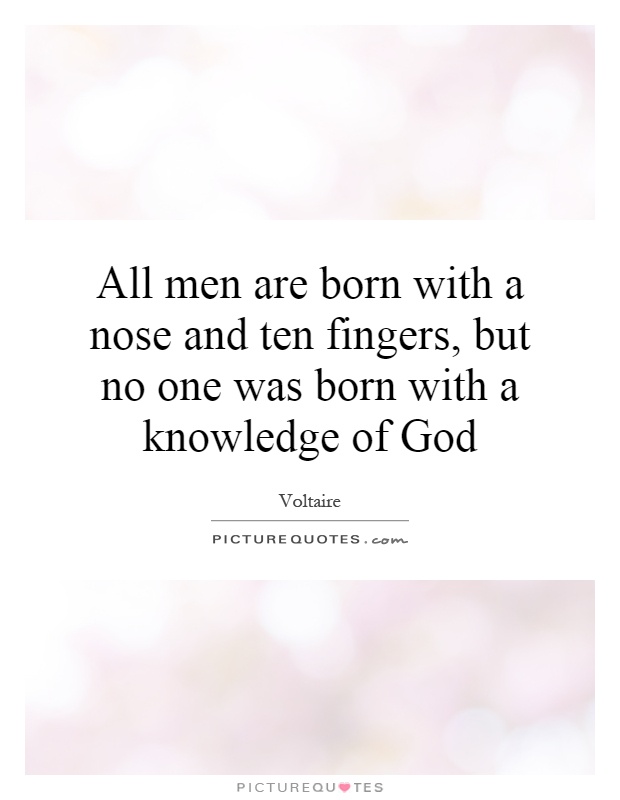All men are born with a nose and ten fingers, but no one was born with a knowledge of God

All men are born with a nose and ten fingers, but no one was born with a knowledge of God
Voltaire, the famous French philosopher and writer of the Enlightenment period, was known for his skepticism towards organized religion and his advocacy for reason and science. In his works, he often criticized the idea of innate knowledge of God, arguing that such beliefs were based on superstition and ignorance rather than rational thought.The statement "All men are born with a nose and ten fingers, but no one was born with a knowledge of God" encapsulates Voltaire's belief that religious beliefs are not inherent in human beings, but rather are learned and passed down through cultural and societal influences. According to Voltaire, the idea of a personal, all-knowing deity is a concept that is imposed on individuals from a young age, rather than something that is naturally ingrained in human nature.
Voltaire's skepticism towards religion can be seen in his famous work, "Candide", where he satirizes the idea of blind faith and the belief in a benevolent, all-powerful God in the face of human suffering and injustice. Through the character of Pangloss, a naive and optimistic philosopher who believes that "all is for the best in the best of all possible worlds", Voltaire critiques the idea that God's existence guarantees a perfect and harmonious world.












 Friendship Quotes
Friendship Quotes Love Quotes
Love Quotes Life Quotes
Life Quotes Funny Quotes
Funny Quotes Motivational Quotes
Motivational Quotes Inspirational Quotes
Inspirational Quotes